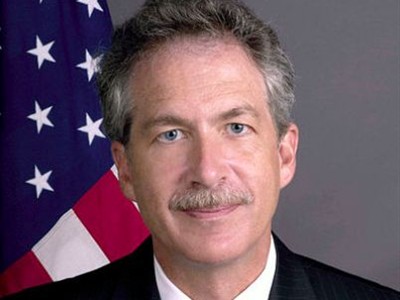CIA Director Burns Meets with Russian Spy Chief in Ankara
The US says the meeting was focused on warning against the use of nuclear weapons, not negotiations on Ukraine

All Global Research articles can be read in 51 languages by activating the Translate Website button below the author’s name.
To receive Global Research’s Daily Newsletter (selected articles), click here.
Follow us on Instagram and Twitter and subscribe to our Telegram Channel. Feel free to repost and share widely Global Research articles.
***
CIA Director William Burns met with the head of Russia’s Foreign Intelligence Service (SVR) in Ankara, Turkey, on Monday, marking the highest-level face-to-face meeting between US and Russian officials since the February 24 invasion of Ukraine.
The unannounced meeting was first revealed by media reports and later confirmed by the Kremlin, which said the talks between Burns and SVR chief Sergei Naryshkin were requested by Washington.
The White House said that the meeting was not an attempt to negotiate an end to the war in Ukraine, but was focused on reducing the risk of nuclear escalation and the detention of US citizens in Russia.
“He is not conducting negotiations of any kind. He is not discussing settlement of the war in Ukraine,” a White House spokesperson told Reuters. “He is conveying a message on the consequences of the use of nuclear weapons by Russia, and the risks of escalation to strategic stability … He will also raise the cases of unjustly detained US citizens.”
The spokesperson repeated the Biden administration’s position that nothing will be negotiated about Ukraine “without Ukraine.” But there does appear to be a shift in the administration’s view on diplomacy, as up until very recently, there was no sign that any talks were being held between the US and Russia.
Recently it has been confirmed that National Security Advisor Jake Sullivan held talks with high-level Russian officials, and the US and Russia plan to resume talks on New START, the last nuclear arms control treaty between the US and Russia. Chairman of the Joint Chiefs of Staff Gen. Mark Milley has come out in favor of negotiations to end the war, although other high-level US officials oppose his push for diplomacy, including Sullivan and Secretary of State Antony Blinken.
Burns’ last known high-level meeting with Russian officials took place in November 2021, when he was sent to Moscow to warn that the US was watching Russian troop movements in the region. Earlier in his career, Burns served as the US ambassador to Russia and had warned in 2008 that NATO expansion in the region would likely lead to war.
In a 2008 cable released by WikiLeaks, Burns wrote:
“Ukraine and Georgia’s NATO aspirations not only touch a raw nerve in Russia, they engender serious concerns about the consequences for stability in the region. Not only does Russia perceive encirclement, and efforts to undermine Russia’s influence in the region, but it also fears unpredictable and uncontrolled consequences which would seriously affect Russian security interests. Experts tell us that Russia is particularly worried that the strong divisions in Ukraine over NATO membership, with much of the ethnic-Russian community against membership, could lead to a major split, involving violence or at worst, civil war. In that eventuality, Russia would have to decide whether to intervene; a decision Russia does not want to have to face.”
*
Note to readers: Please click the share buttons above. Follow us on Instagram and Twitter and subscribe to our Telegram Channel. Feel free to repost and share widely Global Research articles.
Dave DeCamp is the news editor of Antiwar.com, follow him on Twitter @decampdave.

